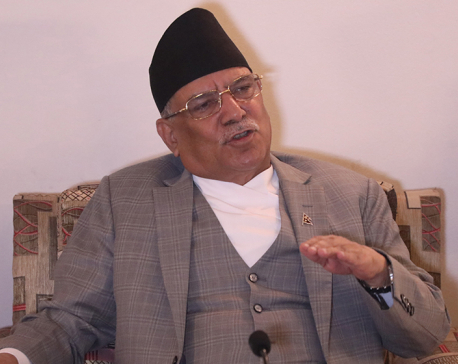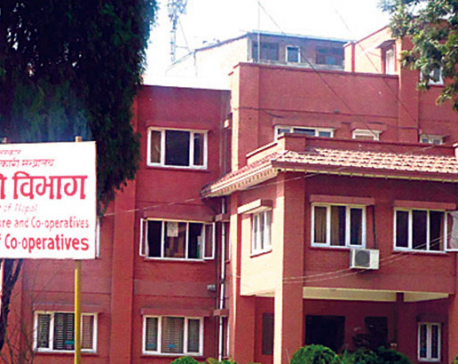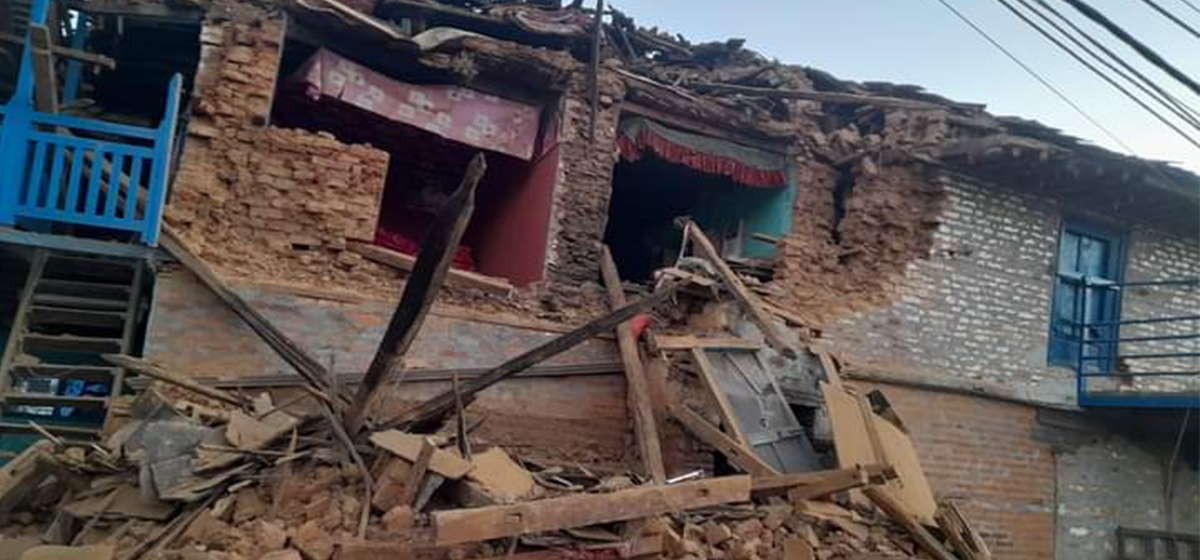
OR
Cooperatives help rural farmers sell their products during lockdown
Published On: September 24, 2020 12:15 PM NPT By: RAJESH KHANAL

KATHMANDU, Sept 24: Cooperatives played a notable role in bringing farm products from the rural to the urban areas, which helped maintain the supply and price stability of the essentials in the market, said the stakeholders of the sector.
Laxmi Subedi, a shopkeeper at a grocery store operated by a multipurpose cooperative in Panipokhari, Kathmandu, said they helped sell the agricultural products produced by farmers in the rural areas of the Kathmandu Valley and the adjoining districts. According to her, the shop sold out large amounts of fresh vegetables, dairy products, flours and homemade pickles prepared by farmers when the mobility was completely halted during the lockdown.
Cooperatives, organizations working at the community level, have played a great role in easing the livelihoods of the people at local level. Their role is considered even more vital mainly during crises that cripple the daily activities of the people.
According to a report of the International Labour Organisation, many cooperatives from around the world have been able to create new jobs mainly in the retail stores to address the demand in the sector in a number of countries. Similarly, cooperatives have also played a key role in protecting small farmers’ food production and keeping the food value chain alive, which has helped reduce the risk of inflated food prices globally. In addition, cooperatives have also played a significant role in the production of much-needed supplies like hand sanitizers and face masks to distribute them in high-risk populations at the grassroot level.
Stakeholders said Nepali cooperatives mostly focused on maintaining supply chains and meeting the financial needs of their members when the income generation was devastated by the pandemic. “Despite having infrastructure constraints, the cooperatives played a significant role in helping out the people at the grassroots,” said Minraj Kandel, chairman of National Cooperative Federation of Nepal.
Lack of skilled manpower, limited use of technology, availability of poor infrastructure and poor implementation of the state laws are some of the underlying problems of the cooperatives in Nepal. The sector is often blamed for failing to maintain transparency in financial transactions, promote productive activities and carry out member-focused functions in their daily operations.
According to Nepal Agriculture Cooperative Central Federation, cooperatives have played an active role in bridging the gap between the highly demanding urban areas and the farmers in rural areas during the lockdown. “Unable to move around during lockdown, farmers were forced to leave their vegetables in the fields, whereas the people living in the urban areas had no access to the farm products,” said Deepakar Rupakheti, program manager of the federation.
He said that many individual cooperatives including the federation sold out the fresh vegetables from their outlets in the Kathmandu valley. Similarly, these cooperatives also help in packaging of the agro products and offer home delivery services to maintain a smooth supply chain.
Kandel however expressed his bitterness stating that the cooperatives suffered setbacks in their efforts also due to the apathy of the government. “With the lack of policy level coordination to manage the market for local products, large amounts of agriculture products were wasted during the lockdown,” Kandel said.
According to him, vegetables, locally produced fruits, milk products, meat and livestock products mainly did not get market and reasonable price due to which the farmers have been highly affected. This had led to a rise in the import of these agricultural products during the lockdown.
Kandel also asked the cooperatives to utilize the online platform for collection, marketing and sale of agricultural products. “Switching to the technology use will make the cooperatives deliver their services more effectively in similar situations in the future,” he added.
You May Like This

‘Love in the Time of Corona’ is ‘time capsule’ of the times
From grappling with big life decisions to a marriage on the brink, a new four-part miniseries tackles relationship struggles during... Read More...

PM Dahal pledges to address issues pestering microfinance, cooperatives
KATHMANDU, Feb 21: Prime Minister Pushpa Kamal Dahal has pledged to take initiatives to address issues pestering microfinance and cooperatives. Read More...

Govt asks cooperatives to report financial transactions online regularly or be ready to face action
KATHMANDU, July 4: Cooperatives will now have to report their financial transactions online on a regular basis to the regulator or... Read More...







Just In
- Nepal's Seismic Struggle and Ongoing Recovery Dynamics
- Shrestha nominated as Chairman of NCC's Advisory Council
- Take necessary measures to ensure education for all children
- Nepalgunj ICP handed over to Nepal, to come into operation from May 8
- Nepal to gift two elephants to Qatar during Emir's state visit
- NUP Chair Shrestha: Resham Chaudhary, convicted in Tikapur murder case, ineligible for party membership
- Dr Ram Kantha Makaju Shrestha: A visionary leader transforming healthcare in Nepal
- Let us present practical projects, not 'wish list': PM Dahal



_20240423174443.jpg)







Leave A Comment